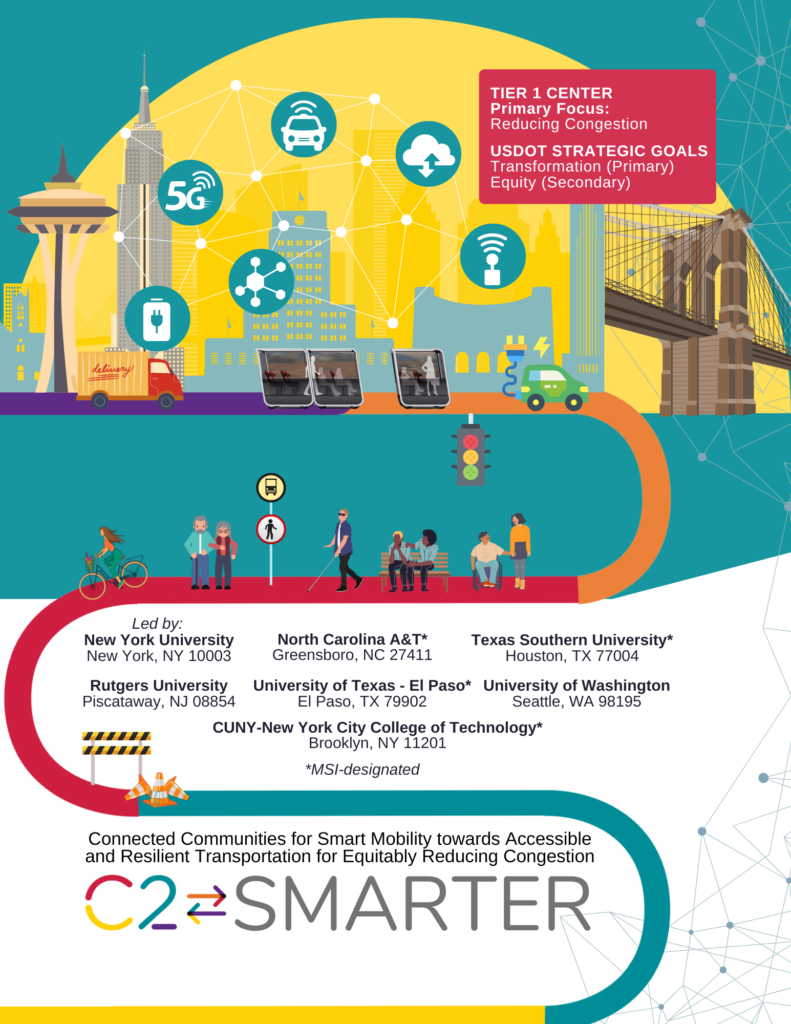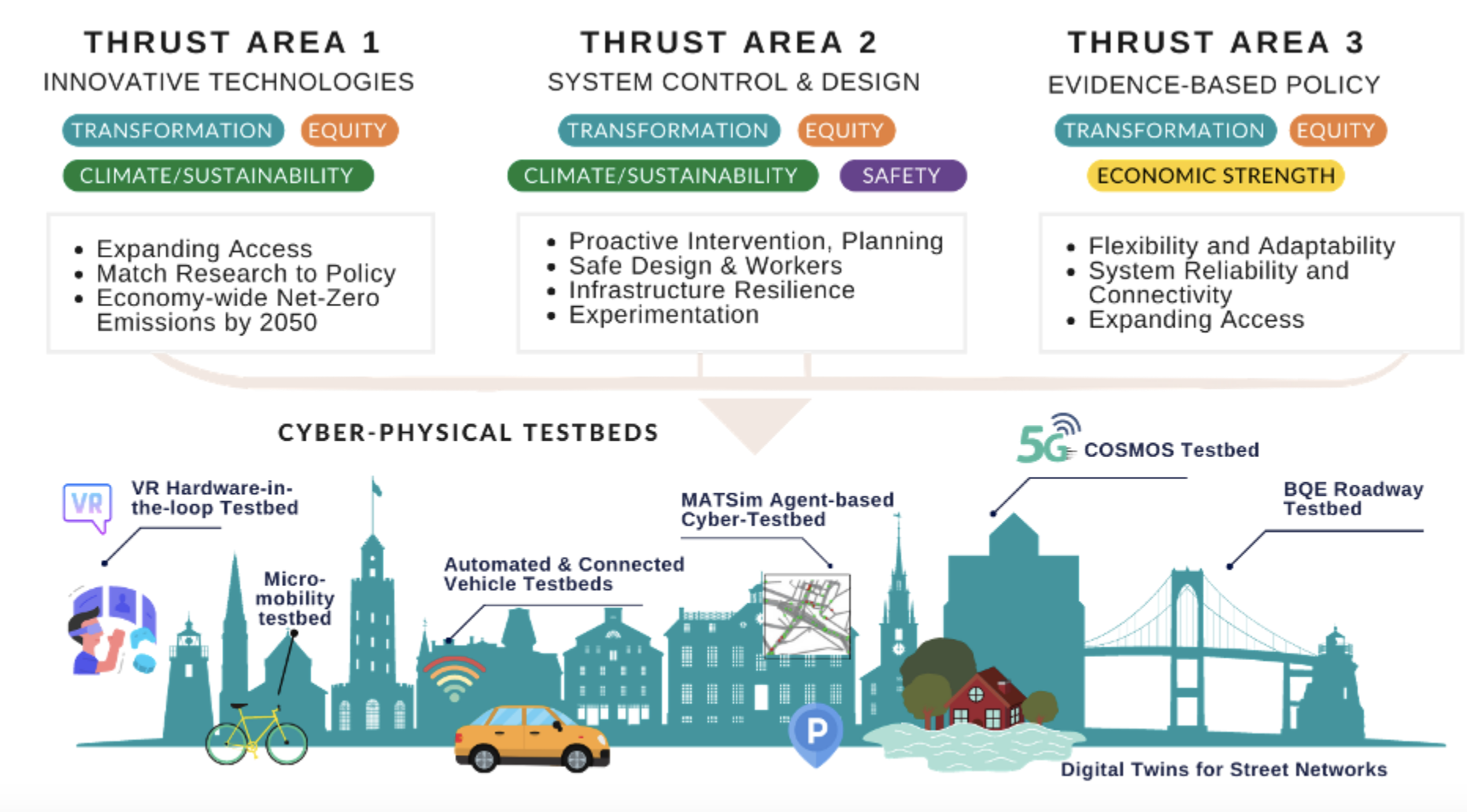The past year brought C2SMART more growth, progress, and partnership-building...
Read MoreC2SMART Center is proud to announce that its proposal to form the Connected Communities for Smart Mobility Toward Accessible and Resilient Transportation for Equitably Reducing Congestion (C2SMARTER) Center was selected for funding by the U.S. Department of Transportation (DOT). C2SMARTER is the only Tier 1 University Transportation Center (UTC) designated under the Bipartisan Infrastructure Law (BIL) to address the U.S. DOT priority area of Congestion Reduction. The awards, announced by U.S. Transportation Secretary Pete Buttigieg, provide $435 million to form UTCs around the country.
The new $15 million center, led by New York University (NYU), continues the C2SMART consortium including Rutgers University, University of Washington, and University of Texas-El Paso, while welcoming new members CUNY’s New York City College of Technology, Texas Southern University, and North Carolina A&T State University to the team. This adds two Historically Black College and Universities (HBCUs), and brings the number of minority-serving institutions in the Center to four.

With $2 million in federal and $1 million in non-federal annual funding over the next 5 years, C2SMARTER will embark on an ambitious research, education, training, and technology transfer program focused on the U.S. DOT priority area of Reducing Congestion. Led by Center Director Prof. Kaan Ozbay, C2SMARTER will build on the foundation of big data, testbeds, and other tools developed as part of C2SMART to deploy congestion-reducing interventions adapted to local community contexts.
Using a system-of-systems (SoS) perspective that integrates transportation infrastructure, motorized and non-motorized travelers from diverse backgrounds, emerging services and modes, and interrelated urban networks such as energy grids and 5G (and 6G) communication networks, its research will direct attention toward how solutions will interact with social, economic, and infrastructural inequities most often experienced by underserved communities. This will continue C2SMART’s successful collaborations with its partner City and State DOTs on important infrastructure projects such as the Brooklyn-Queens Expressway Triple Cantilever, and expand technology transfer to both inner-city and Rural, Isolated, Tribal, and Indigenous (RITI) communities and neighborhoods.
Composed of some of the top education institutions in the country, C2SMARTER will build off of its University programs with new funding for student research and support, expanded cross-school student programs, and increased connections to the transportation workforce. The Center will expand its training and skill-building programs to make sure the latest advances in technology and learning reach decision-makers. C2SMARTER will also work with local K-12 students, including expanding opportunities for students from underrepresented and underserved communities to enter the transportation field.
Through these programs, C2SMART and its partners will learn from the experiences of consortium-wide members to build locally-contextual programs designed to help each other deploy community-oriented technology transfer, ensuring that tools and technologies developed under this grant reach those who need them the most.

Related Posts
C2SMARTER FDNY Collaboration Included in Popular Science’s 50 Greatest Innovations of 2024
December 9, 2024 The AI-reinforced Digital Twin focused C2SMARTER project,...
Read MoreC2SMARTER at TRB 2025
The Transportation Research Board (TRB) 102nd Annual Meeting was held...
Read MoreC2SMARTER Announces 2024-2025 Research Agenda
In 2025, C2SMARTER is focused on reducing congestion and ensuring...
Read More



